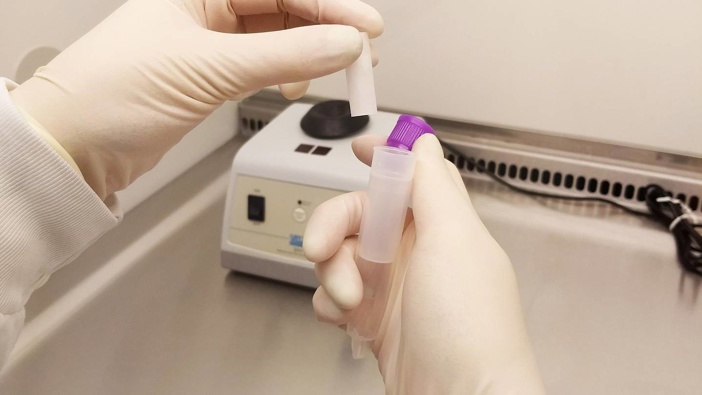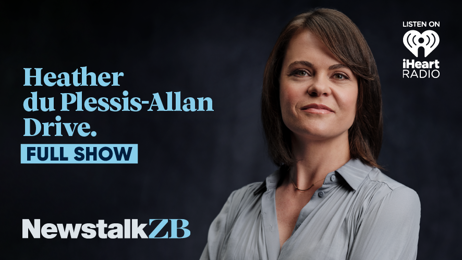Follow
the podcast on

Air New Zealand staff will be tested for Covid-19 using saliva samples, in a three-week study kicking off next week.
Saliva-based testing has been increasingly touted as a quick, accurate and less invasive option for those who need regular checks - and if the study is successful it could be rolled out more widely.
In the new trial, led by ESR and Air New Zealand, staff members will provide saliva samples alongside their regular nasopharyngeal swabs, so the two can be compared.
ESR's chief scientist, Dr Brett Cowan, said there was hope saliva testing would be more comfortable than current methods.
"This study will go a long way to determine how saliva testing might fit, or not fit alongside nasal swab testing, within New Zealand's unique context where we must detect and track every case," he said.
"Every time our testing regime is adjusted, it needs to be based on rigorous, evidence-based science to ensure our communities have the best protection.
"If saliva testing is to be incorporated into our testing regime, it needs to undergo that same scrutiny for us to have confidence in its ability to detect Covid-19."
The study will include the SalivaDirect Covid-19 testing technology developed by Nathan Grubaugh and Anne Wyllie at Yale University in the US.
Last year given emergency use authorisation by the US Food and Drug Administration (FDA), SalivaDirect was well suited for groups of people who needed repeated testing.
While based on PCR methods currently used for analysing virus samples, SalivaDirect required only a small sample - or people essentially having to spit into a container.
The procedure was arguably safer, in that there was less risk of exposure to health care workers collecting the samples.
Results so far have shown it to be highly sensitive and accurate about 94 per cent of the time - compared to the effectiveness of nasal swabs.
"Yale's protocol needs to be adapted for the New Zealand context and we have been creating an evidence base for it along with the other options out there," Cowan said.
"Just like our gold-standard test, the nasopharyngeal sample by PCR, we need to validate results and protocols in New Zealand laboratories."
As the national reference laboratory, ESR was best placed to do this work and the study will involve several experiments, such as the trialling of three methods for the saliva collection.
It will also further develop laboratory procedures to best work with saliva, as it can be difficult to work with in the laboratory.
"It's sticky and bubbly," Cowan says.
"This makes it much more labour-intensive and difficult for laboratory staff, but we have had some clever scientists working on those issues and the study will help them along."
Air New Zealand chief medical officer Dr Ben Johnston said surveillance testing for Covid-19 for crew, pilots and airport staff would be required some time into the future.
"It's great to be teaming up with ESR on this study to see if there is a more non-invasive and comfortable testing option which would greatly improve the experience for our people and New Zealanders," he said.
ESR was undertaking several other bodies of work alongside the study to support the evidence base, including the collection of paired samples from positive cases in managed isolation and quarantine facilities.
The results will be provided to the Ministry of Health.
If the results are promising, Cowan said, New Zealand may have another instrument to add alongside the nasal swab to help keep Covid-19 in check.
It comes as the Government is poised to extend compulsory pre-flight Covid tests for virtually all international travellers in an effort to cut the number of people landing in New Zealand with the virus, which has almost doubled recently.
Covid-19 Response Minister Chris Hipkins said it was inevitable that vaccinations against Covid 19 will become a pre-requisite for international travel, once the mass vaccinations around the globe are completed.
He also said Air New Zealand was considering further measures to reduce the risk of crew exposure to Covid during layovers in the United States.
Compulsory pre-flight testing for arrivals to New Zealand has just come into effect for arrivals from the United States and Britain where hospitals are struggling to cope with new waves and deaths are about 4000 and 1000 a day respectively.
text by Jamie Morton, NZ Herald
Take your Radio, Podcasts and Music with you









